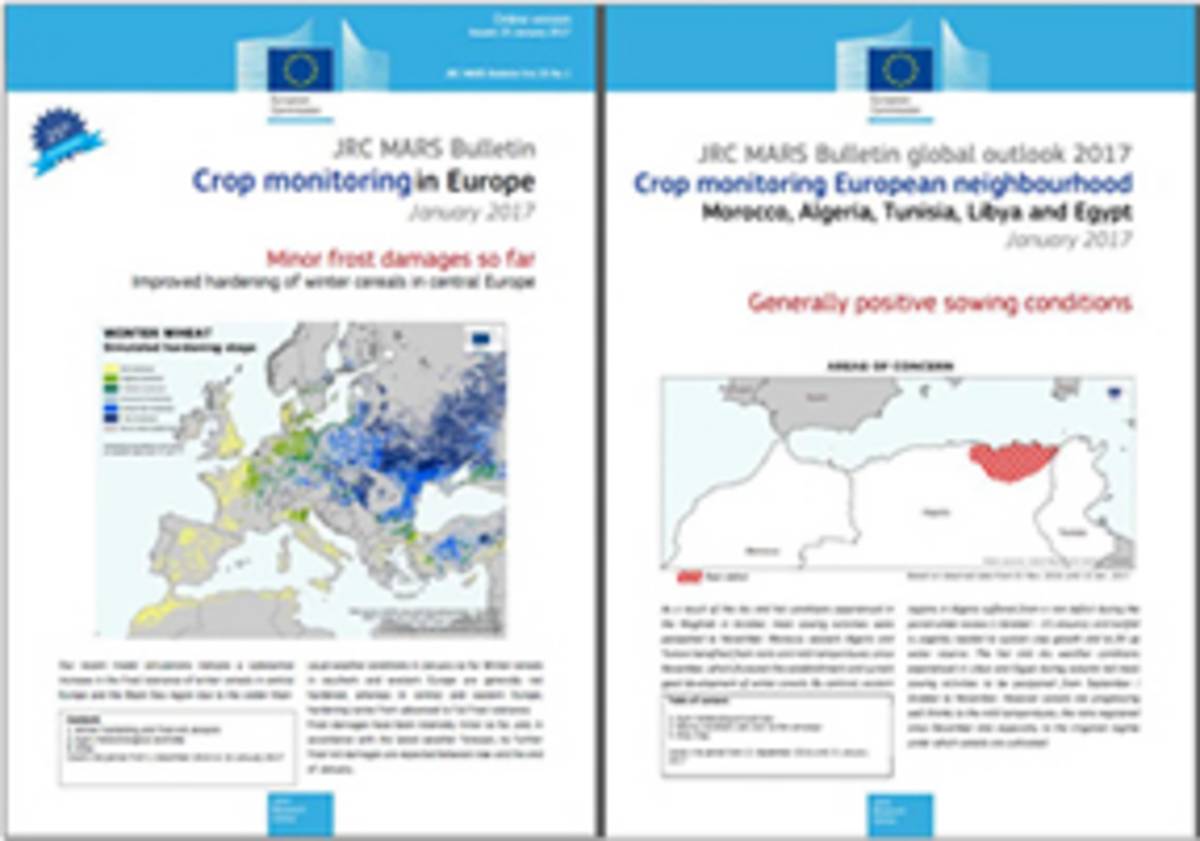Crop monitoring and forecasts for Europe and northern Africa

The setting up of an independent system for crop monitoring and yield forecasting beyond the European Union will help meet the European Commission's commitments under the G20 initiative that were taken in 2011 to support the Agricultural Information and Market System (AMIS) and the Global Agricultural Monitoring Initiative (GEOGLAM), which aim to enhance food market transparency and strengthen global agricultural monitoring. The information provided in the MARS bulletins should help policymakers anticipate the impacts on food security of extreme weather events. In this context, transparency has become recognised as a key factor for stabilising markets and avoiding excessive volatility.
Minor frost damages in Europe so far
Today's MARS crop monitoring in Europe bulletin reports that the hardening (frost tolerance) of winter cereals has improved substantially in central Europe and the Black Sea region due to the colder-than-usual weather conditions in January. Winter cereals in southern and western Europe are generally not hardened.
Frost damages have been relatively minor so far, and, on the basis of the latest weather forecast, no further frost-kill damages are expected between now and the end of January.
Generally positive sowing conditions in northern Africa
The MARS crop monitoring bulletin on northern Africa finds that sowing conditions were generally positive.
Morocco, western Algeria and Tunisia benefited from rains and mild temperatures since November, which favoured the establishment and current good development of winter cereals. By contrast, eastern regions in Algeria suffered from a rain deficit and rainfall is urgently needed to sustain crop growth and to fill up water reserve. The hot and dry weather conditions experienced in Libya and Egypt during autumn led most sowing activities to be postponed from September / October to November. However cereals are progressing well thanks to the mild temperatures, the rains registered since December and, especially, to the irrigation regime under which cereals are cultivated.
Links:
Event Information
Date: 23.01.2017 - 12:00 AM